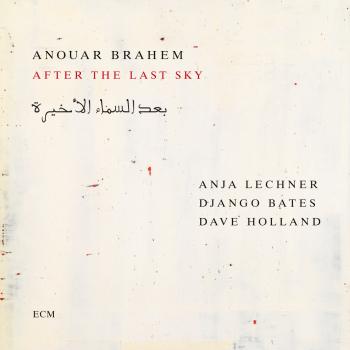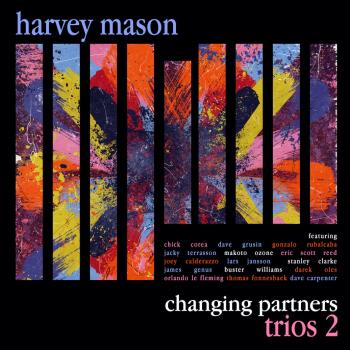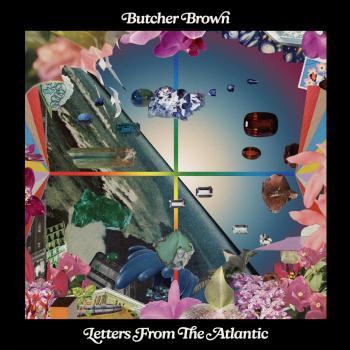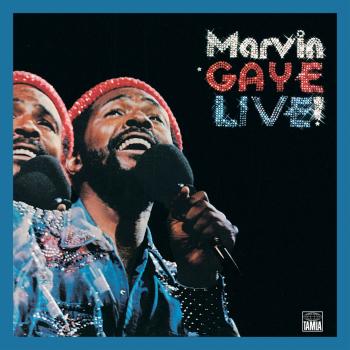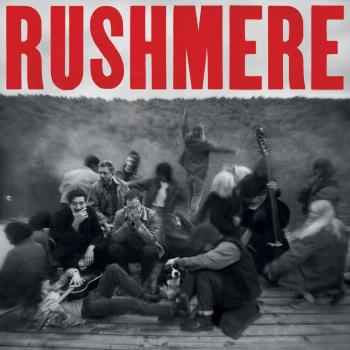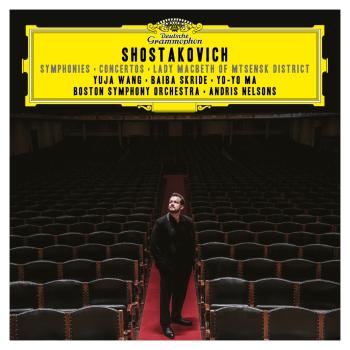
Exile On Main Street (2009 Mix) The Rolling Stones
Album Info
Album Veröffentlichung:
2020
HRA-Veröffentlichung:
03.07.2020
Das Album enthält Albumcover
Entschuldigen Sie bitte!
Sehr geehrter HIGHRESAUDIO Besucher,
leider kann das Album zurzeit aufgrund von Länder- und Lizenzbeschränkungen nicht gekauft werden oder uns liegt der offizielle Veröffentlichungstermin für Ihr Land noch nicht vor. Wir aktualisieren unsere Veröffentlichungstermine ein- bis zweimal die Woche. Bitte schauen Sie ab und zu mal wieder rein.
Wir empfehlen Ihnen das Album auf Ihre Merkliste zu setzen.
Wir bedanken uns für Ihr Verständnis und Ihre Geduld.
Ihr, HIGHRESAUDIO
- 1 Rocks Off (2009 Mix) 04:31
- 2 Rip This Joint (2009 Mix) 02:22
- 3 Shake Your Hips (2009 Mix) 02:59
- 4 Casino Boogie (2009 Mix) 03:33
- 5 Tumbling Dice (2009 Mix) 03:45
- 6 Sweet Virginia (2009 Mix) 04:25
- 7 Torn And Frayed (2009 Mix) 04:17
- 8 Sweet Black Angel (2009 Mix) 02:54
- 9 Loving Cup (2009 Mix) 04:23
- 10 Happy (2009 Mix) 03:04
- 11 Turd On The Run (2009 Mix) 02:36
- 12 Ventilator Blues 03:24
- 13 I Just Want To See His Face 02:52
- 14 Let It Loose 05:16
- 15 All Down The Line 03:49
- 16 Stop Breaking Down 04:34
- 17 Shine A Light 04:14
- 18 Soul Survivor 03:49
Info zu Exile On Main Street (2009 Mix)
Regarded as one of the greatest albums in Rock 'n' Roll history and one of the most defining of the Stones' catalogue.
Upon its release more than three decades ago, 'Exile on Main Street' innovatively wove varying musical genres, instruments and even artists into a compelling rhythmic masterpiece. This new compilation features 10 tracks originally recorded during the Exile era and only recently discovered while working on the reissue project. The unearthed tracks which include such titles as 'Plundered My Soul', 'Dancing in the Light', 'Following the River' and 'Pass The Wine' have undergone a unique evolution, while staying true to the essence of the 1972 album. Alternate versions of 'Soul Survivor' and 'Loving Cup' also are a part of the Exile bonus materials.
The original 18-track double-album was recorded in various stages at multiple locations, including Olympic Studios in London, Keith Richard’s mansion Nellcote in France, and in Los Angeles where the literal 'Main Street' influenced the album title. These atypical circumstances surrounding the recording process greatly affected the album’s outcome which was highly reflective and influenced by the sociopolitical turbulence that marked the late `60s and early `70s. The Stones nixed the influences of a flower-child era and directed their creative process with the edgier, excessive, "more is more2 approach of the `70s. Exile reveals a sprawling mix of genres with undertones of blues, country, R&B and gospel mixed with lyrics that fervently demand for release and liberation.
The album pulled together an electric array of talent including Dr. John, the late Billy Preston and pianist Nicky Hopkins. Guitarist Mick Taylor, who replaced Brian Jones in the band shortly before Jones died in 1969, is a magnificent blues player who brought an intensity and elegance to these epic tracks. At times, these musicians and others lived on the recording studio premises with the band creating an extremely open and creative collaboration for the album.
The album’s riveting portrait of artists pushed – by the times, by themselves – to the very limits of their creativity has provided inspiration to every musical generation that has come along since Exile was released in 1972", said author Anthony DeCurtis. "Every song on Exile on Main Street is elevated by its relationship to the music that comes before and after it. The album’s irresistible power is unlikely to diminish any time soon"
"Greeted with decidedly mixed reviews upon its original release, Exile on Main St. has become generally regarded as the Rolling Stones' finest album. Part of the reason why the record was initially greeted with hesitant reviews is that it takes a while to assimilate. A sprawling, weary double album encompassing rock & roll, blues, soul, and country, Exile doesn't try anything new on the surface, but the substance is new. Taking the bleakness that underpinned Let It Bleed and Sticky Fingers to an extreme, Exile is a weary record, and not just lyrically. Jagger's vocals are buried in the mix, and the music is a series of dark, dense jams, with Keith Richards and Mick Taylor spinning off incredible riffs and solos. And the songs continue the breakthroughs of their three previous albums. No longer does their country sound forced or kitschy -- it's lived-in and complex, just like the group's forays into soul and gospel. While the songs, including the masterpieces "Rocks Off," "Tumbling Dice," "Torn and Frayed," "Happy," "Let It Loose," and "Shine a Light," are all terrific, they blend together, with only certain lyrics and guitar lines emerging from the murk. It's the kind of record that's gripping on the very first listen, but each subsequent listen reveals something new. Few other albums, let alone double albums, have been so rich and masterful as Exile on Main St., and it stands not only as one of the Stones' best records, but sets a remarkably high standard for all of hard rock." (Stephen Thomas Erlewine, AMG)
The Rolling Stones
Recorded October 1970, June 1971 – March 1972 at Olympic, London; villa Nellcôte, France; Stargroves Manor, England; Sunset Sound Recorders, Los Angeles
Produced by Jimmy Miller
Digitally remastered
Die Rolling Stones
untergruben die Moral. Sie transformierten eine Generation. Sie waren so unbequem, dass man sie zeitweise wie Staatsfeinde verfolgte. Ihren Bandnamen entlehnten sie einem Song von Muddy Waters.
Brian Jones und Co. ließen die Monster hinter den kruden Anspielungen amerikanischer Bluessongs los. Die Stones machten explizit, was der Blues nur andeutete, sie konnten es sich leisten.
Ihre Chemie blieb unerreicht: Mick Jagger, dieser exaltierte Gockel, er änderte für immer die Regeln der Bühnenperformance im Rock. Angeschoben von Keith Richards, dessen Gitarrensound jeden Stones-Song nach Sekunden erkennbar macht. Charlie Watts wurde der Zen-Meister des Rocks – keine überflüssige Handbewegung, jede Geste perfekte Eleganz.
Als ihr erster Manager Andrew Loog Oldham sie am 28. April 1963 zum ersten Mal live auf der Bühne sah, da waren die Rolling Stones ein charismatischer Haufen innerhalb des braven britischen Blues-Revivals um Alexis Korner.
Oldham wurde schnell klar, dass die Stones zu den Anti-Beatles werden mussten. Zu einer Band, die Jugendliche für sich selbst behalten konnten, wo die Eltern nicht mehr milde lächelten.
In der Tat brach ein Krieg zwischen den Beatles und den Stones um die Spitze der britischen Charts aus: „With The Beatles“ wurde abgeschossen vom titellosen Debütalbum der Rolling Stones, nach 12 Wochen fiel dieses dort gegen „A Hard Days Night“.
Bis zu ihrem „Aftermath“-Album sollten die Stones vorwiegend Songs anderer berühmt machen: Buddy Hollys „Not Fade Away“, das sie á la Bo Diddley interpretierten, oder „It´s All Over Now“ von Bobby Womack.
Nachdem Oldham Jagger und Richards dazu zwang, eigene Songs zu schreiben, lieferten die Stones 1965 mit „(I Can´t Get No) Satisfaction“ den klassischsten aller klassischen Rocksongs ab, artikulierten den Frust der Jugend im Großbritannien der Nachkriegszeit. Den Stones-Frontmann und seine Freundin Marianne Faithfull rief man zum It-Paar des „Swinging London“ aus.
Mit „Street Fighting Man“ schrieben die Stones den Soundtrack der 1968er-Studentenrevolte. Von Anfang an Anti-Hippies, setzten sie dem „Let It Be“ der Beatles ihr eigenes „Let It Bleed“ entgegen. Während der Aufnahmen von „Let It Bleed“ ertrank der Stones-Mitbegründer Brian Jones in seinem Swimming-Pool, nachdem er zuvor aus der Band gedriftet war.
Die Stones ersetzten Jones mit Mick Taylor und danach Ron Wood. Das melodische Gitarrenspiel beider sollte einen perfekten Gegenpol zum unaufhaltsamen rhythmischen Drive von Keith Richards bilden.
Die kreative Phase der Stones zwischen den späten 1960ern und den frühen 70ern ist unübertroffen. Routiniert tauchen ihre damaligen Alben in den Listen der besten LPs aller Zeiten auf: „Beggar´s Banquet“, „Sticky Fingers“, „Exile On Main Street“, „Goats Head Soup“ – alle damals produziert vom „unglaublichen Rhythmustypen“ Jimmy Miller.
1978 reagierten die Stones mit „Some Girls“ ganz gelassen auf die musikalischen Umwälzungen von Disco und Punk.
„Tattoo You“ von 1981 führt die Bestenlisten ihrer Spätwerk-Alben an. Im Alleingang schob damals die Turbo-#1-Single „Start Me Up“ – ein jahrelang zurückgehaltener Song – das Album ins Rampenlicht.
Stark unterschätzt, steht das 24. Studioalbum „Dirty Work“ im Schatten von „Tattoo You“, gilt aber bei Stones-Fans und -Experten als immer wieder neu zu entdeckendes Highlight. Dort spannten 1986 die Stones Steve Lillywhite vor ihren Karren, den Produzenten der ersten drei Alben von U2.
Er habe von ihm jedes Gitarrenriff kopiert, gab Keith Richards öffentlich zu, als er 1986 Chuck Berry in die Rock´n´Roll Hall of Fame einweihte. „Sie nahmen mir meine Musik, aber sie gaben mir meinen Namen“, sagte Chuck Berry über die Stones.
Nach Erscheinen ihres 1989er-Albums „Steel Wheels“ kehrten die Stones nach sieben Jahren Live-Auszeit wieder auf die Bühne zurück, um ihren Titel der „größten Rock´n´Roll-Band der Welt“ zu verteidigen, den ihnen die Rockpresse zwanzig Jahre zuvor vergeben hatte.
Flankiert von ihren starken Studioalben der 1990er: „Voodoo Lounge“ und „Bridges To Babylon“ – aufgenommen mit dem Miles Davis-Bassisten Darryl Jones, der mit Charlie Watts dort ein formidabel-kongeniales Rhythmus-Gespann bildet.
Die bisherige Studio-Diskografie der Stones schließt das Urknall-Album „A Bigger Bang“ von 2005 ab.
Die Metamorphose des Rocks – von Muddy Waters und Chuck Berry zu AC/DC, Guns´N´Roses, Oasis oder den White Stripes – ohne die Rolling Stones hätte das alles womöglich nicht stattgefunden.
Dieses Album enthält kein Booklet

